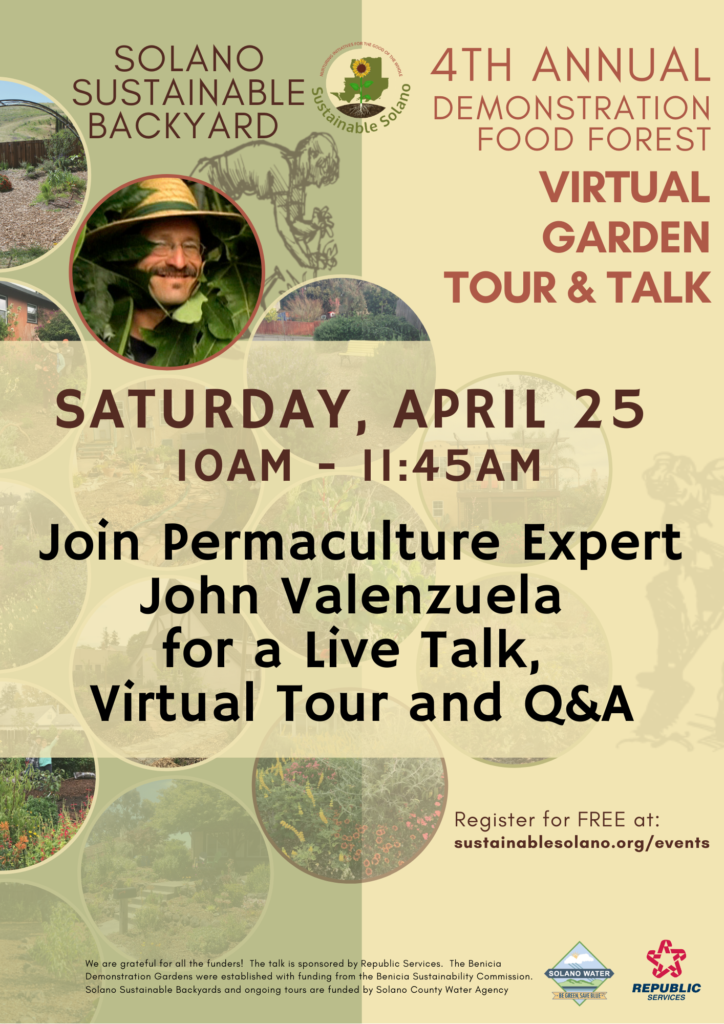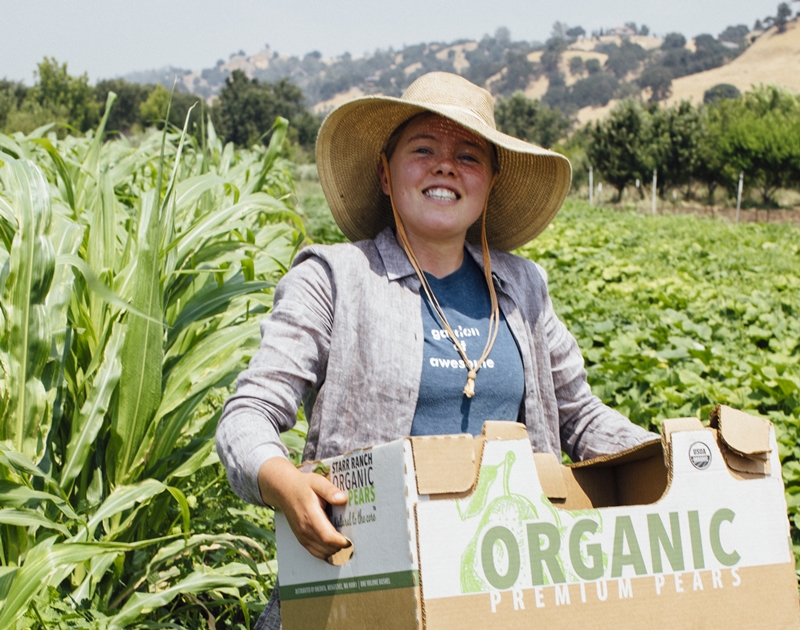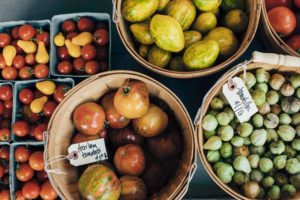Learn How to Plant Seasonal Fruits and Vegetables in New Video Tutorials
By Gabriela Estrada, Solano Gardens Program Manager

Scott Dodson of Scotty’s Organic Gardening covers spring garden basics from prepping to planting
This spring, interest in gardening has surged with so many people staying at home. We wanted to help with what to do to get the most out of your seasonal garden beds.
Sustainable Solano has re-envisioned a lot of our programs to fit the current stay-at-home guidelines under COVID-19. We wanted this new vision of our programs to be a resource for the community, and we wanted it to be as accessible as possible. With this in mind, all the program managers began to think about tools that we could offer to the greater Solano County community (and possibly beyond).
For Solano Gardens, a program that focuses on food production in urban areas, we’ve created a series of educational videos that could support individuals getting started on their very own vegetable garden either at home or in their nearest community garden! The video tutorials are from Scott Dodson of Scotty’s Organic Gardening. Scott is the designer behind our gardens at Solano County schools, churches and other community sites. These videos focus on supporting beginners who want to grow their own annual fruits and vegetables (tomatoes, peas, watermelons, etc.), but who don’t know how to get started.
The video series begins with spring gardening (the current growing season), but thanks to generous support from Solano County, Scott will continue this video series and offer seasonal tricks and tips for year-round growing.
You can watch the videos on this page, which includes links to other resources, or in the playlist below.
Future video tutorials will include summer, fall and winter gardening, pruning and plant propagation. If you have any topics you think should be included in this video series, be sure to send me an email at gabriela@sustainablesolano.org.
Want to start growing at Swenson Community Garden in Benicia (where these videos are filmed and garden beds are still available)? Learn more about joining Benicia Community Gardens here.





